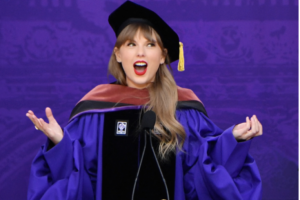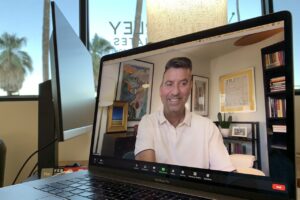Across thousands of college and university campuses in this country, the academic year has begun. On freshly mowed quads, harried students rush off to their 8:00 a.m. classes, wishing they were on Zoom and cursing the registrar for jolting them awake from their cozy dorm slumber. For those of us who have committed our lives to teaching them, advising them, and ensuring their safety, we somehow get older each September. Not our students though – they remain magically frozen in the adulting age of eighteen to twenty-two. But according to Lindsey Beagley, Simon Chan, and Kyra Jones in recent Inside Higher Education article, our traditional-aged students are in for a massive demographic shift. They write that by 2034 people over the age of 65 are expected to outnumber young learners for the first time in US history.
So what does this mean for the nearly 6,000 colleges and universities banking on a steady influx of traditionally-aged students to fill their freshmen classes? It appears that one thing is certain. There will be less of them. According to the Center for Education Statistics, the number of Title IV higher education institutions fell from 5,918 in 2022-23 to 5,819 in 2024, a net loss of 99 colleges and universities. For an industry that has been on a trajectory of steady growth since Plato launched his Akademia in a grove of olive trees outside of Athens in 387 BC, higher education needs a more comprehensive plan for instruction if the industry is going to serve a generational landscape that is rapidly shifting.
Enter Baby Boomers and their slightly younger siblings, Generation Jones. Combined, they are a collective on the grow and one that is living longer than any generation before. Yet they are performing in the same three-act play as their parents did: Act 1—you learn; Act 2—you earn; Act 3—you retire. “Not so fast!” according to demographic research that points to the evolving tastes of people between the ages of 59 and 78. In fact, many want more than a gated golf club community and massive home entertainment system to binge their days away. They are looking for products, services, and experiences that are learning centered. They are cool with retirement; they just want retirement + purpose.
A growing number of prominent universities throughout the world are stepping in to meet the demand by redeploying their faculty and repurposing their campuses for a new audience of non-matriculated learners seeking to reflect deeply on their careers and write a new script for the next act of their lives. Stanford’s Distinguished Careers Institute and Harvard’s Advanced Leadership Institute are among the most notable. Other campus programs have joined the mix, including Notre Dame’s Inspired Leadership Initiative, University of Minnesota’s Advanced Career Initiative, and UT-Austin’s Tower Fellows. At Arizona State University, its Lifelong University Engagement initiative accommodates over 450 elders who have moved into a high rise community called Mirabella, right in the heart of ASU’s Tempe campus.
A network has emerged to provide thought leadership to this growing higher education sub-industry. Called the Nexel Collaborative, this not-for-profit network of academics and administrators has created a base camp for college-based midlife transition programs designed to help learners renew their purpose, build new social networks, incorporate wellness practices, and foster intergenerational and community engagement.
In my work as a higher education executive coach, I connect with college campuses every day, and I think about my long-time colleagues and clients who could fuel their creativity with campus-based transition programs like the members of the Nexel Collaborative. In fact, one did. Catherine Neiner, upon her retirement from Georgia State University, applied for the new Next Horizons program at Oxford University. She was promptly accepted, and she moved to the UK for six months to be part of the inaugural 20-person cohort of non-traditional learners from throughout the world. To hear Catherine describe the transformative impact Next Horizons created for her is to experience a fond reflection of one’s halcyon college days. She lived in an unfamiliar place. She established deep relationships with her classroom peers. She completed original research on an academic area of interest. Most especially, Catherine realized clarity that she fully employs as she writes and performs her next act. It sounds just like college, doesn’t it? Only better. I can’t wait to be in Catherine’s audience.





